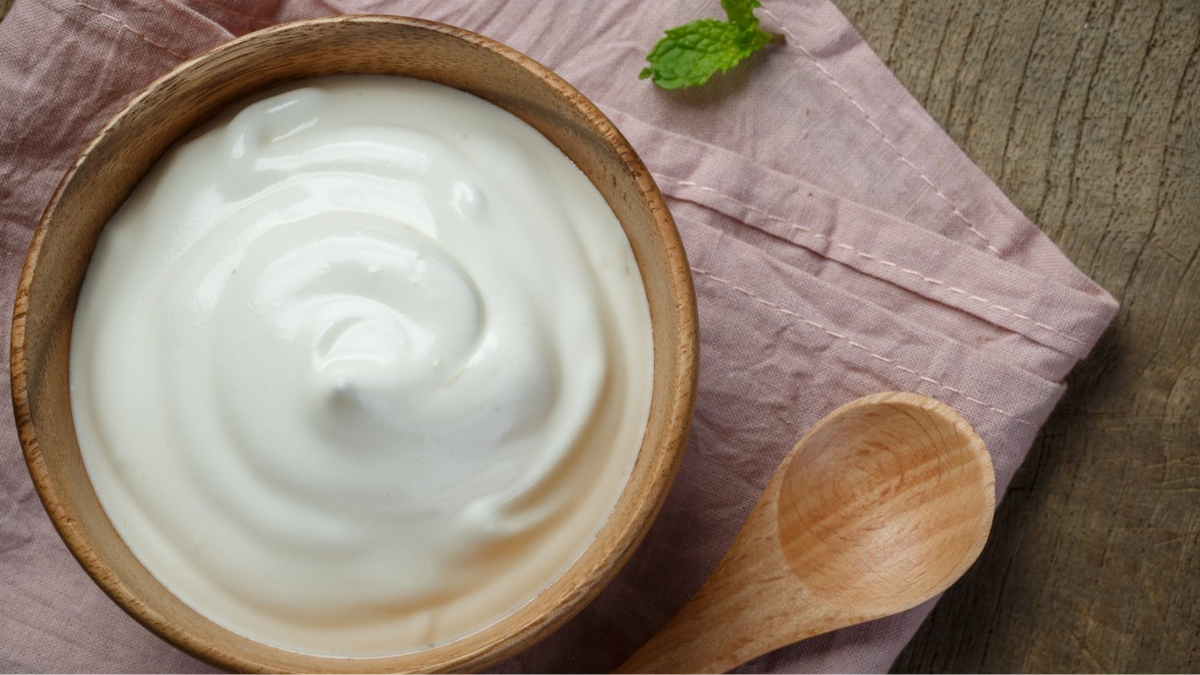
Curd improves gut health by enhancing digestion and nutrient absorption
Curd, also known as dahi, is a natural probiotic that supports gut flora. The live bacteria present in curd help break down food more efficiently, allowing for better digestion and absorption of nutrients. These probiotics balance the gut microbiota, reducing issues like constipation, bloating, and indigestion. Regular intake of curd can also reduce the severity of gastrointestinal conditions such as irritable bowel syndrome (IBS) and inflammatory bowel disease (IBD). Unlike milk, curd is easier to digest and is a beneficial option for people with lactose intolerance.
Eating curd daily boosts immunity and prevents common infections
Curd contains lactic acid bacteria that stimulate the production of white blood cells, enhancing your immune response. The presence of zinc and vitamin D further supports immune function. Including curd in your daily meals can reduce the frequency of infections like colds, flu, and even foodborne illnesses. Probiotics in curd also help prevent the overgrowth of harmful bacteria in the gut, indirectly supporting overall immune health.
Curd helps in weight management and fat loss naturally
Curd is rich in protein and calcium, both of which promote satiety and help in controlling appetite. A bowl of curd keeps you full longer and reduces cravings, making it easier to stick to a calorie-controlled diet. The calcium in curd also helps regulate the hormone cortisol, which is linked to fat storage in the abdominal area. Opting for low-fat or homemade curd can further support weight management without compromising on taste or nutrition.
Curd benefits skin by reducing acne and promoting glow
Thanks to its antibacterial and antifungal properties, curd can help in treating acne when consumed or applied topically. It contains lactic acid, which helps exfoliate the skin and reduce pigmentation. Regular consumption improves skin hydration from within, promoting a natural glow. Applying a curd face mask can also soothe sunburn and reduce skin irritation due to its cooling and healing nature.
Including curd in diet helps control high blood pressure levels
Potassium-rich foods like curd are excellent for people with high blood pressure. Potassium helps balance out the negative effects of sodium and supports the relaxation of blood vessels. This leads to better regulation of blood pressure levels. Regular consumption of unsalted, homemade curd can be a simple dietary change that significantly contributes to cardiovascular health.
Curd supports strong bones and teeth through calcium and phosphorus
Curd is an excellent source of calcium and phosphorus, both essential for maintaining strong bones and healthy teeth. These nutrients are more bioavailable in curd than in milk, meaning they are absorbed more efficiently by the body. Curd also contains vitamin D, which aids in the absorption of calcium, making it especially beneficial for children, the elderly, and people at risk of osteoporosis.
Curd helps reduce stress and anxiety through gut-brain connection
The gut and brain are closely connected, and curd helps maintain this connection by supporting gut health. The probiotics in curd influence neurotransmitter production, including serotonin, often called the ‘happy hormone’. Regular intake can reduce stress levels and improve mood. Studies have shown that people who consume probiotic-rich foods like curd have lower levels of cortisol, the stress hormone.
Consuming curd daily regulates blood sugar in diabetic individuals
For those managing diabetes, curd can be a valuable addition to the diet. It has a low glycemic index and slows down the absorption of sugar in the blood. The protein and healthy fats in curd also contribute to stabilizing blood sugar levels. Unsweetened, plain curd consumed with meals can reduce post-meal glucose spikes, making it diabetic-friendly.
Curd improves heart health by reducing cholesterol levels
Curd helps lower LDL (bad) cholesterol and increase HDL (good) cholesterol due to its probiotic content and low fat profile. The presence of calcium and potassium further supports heart function and vascular health. When consumed as part of a balanced diet, curd can reduce the risk of atherosclerosis and maintain arterial flexibility, reducing the likelihood of heart attacks and strokes.
How to incorporate curd into your daily meals effectively
Curd can be consumed as a side dish, in smoothies, as salad dressing, or even used in baking to replace cream or butter. You can prepare raita, mix it with fruits for a probiotic snack, or use it as a base for healthy dips. Always opt for homemade or unsweetened curd to maximize health benefits and avoid added sugars or preservatives found in packaged varieties.
